On Tuesday, May 15, 2007, the Rev. Dr. Calvin O. Butts III, pastor of the nationally renown Abyssinian Baptist Church, announced an 18-month Bicentennial Celebration for the historic institution, adopting as its bicentennial theme Abyssinian 200: True to Our God, True to Our Native Land. New York City mayor Michael Bloomberg proclaimed the day Abyssinian Baptist Church Day and New York State’s top elected officials, Governor Elliot Spitzer, Senator Hillary Clinton, and Congressman Charles Rangel sent special acknowledgements via teleconference wide-screen. The events being planned for the bicentennial will highlight the church’s remarkable spiritual, social, and political contributions that have changed the cultural landscape of America and impacted the world.
Organized in 1808, Abyssinian Baptist Church was founded as a result of disaffection felt by African American and Ethiopian congregants of the First Baptist Church in lower Manhattan, who rejected the segregated worship services and white supremacist practices that prevailed during that period. In the ensuing years, Abyssinian’s worship sites have traversed much of Manhattan, including lower Manhattan and Greenwich Village during the Civil War years, and eventually settling for a time in midtown Manhattan in what is today Times Square.
In 1923, under the leadership of the Reverend Dr. Adam Clayton Powell Sr., the church purchased property on 138th Street between Lenox and Seventh Avenues. Its growing membership flourished, becoming one of the largest Protestant congregations in America with slightly more than14,000 congregants. The Reverend Dr. Butts is the church’s eighth Executive Pastor in a succession of imminent spiritual leaders, including Dr. Samuel DeWitt Proctor, who have led Abyssinian, from its nascent days during slavery into the 21st century to the forefront as an institutional catalyst and model for the spiritual, social, economic, and political aspirations of persons of African descent. Reverend Butts received national attention in 1993 when he led a demonstration in response to offensive and negative lyrics in hip-hop music, publicly dramatizing the issue by driving a steam roller over a pile of hip-hop CDs and cassette tapes.
“Abyssinian 200 is a milestone that represents the continuous role of the African American church as a galvanizing force in the building of beloved communities,” said Reverend Butts on Tuesday. “Through spiritual edification, social justice, political activism, and economic empowerment, the Abyssinian Baptist Church and all churches doing similar work have been sustained leaders of spiritual transformation in the context of real world issues. These issues include housing, education, culture and the arts, family tradition, and ownership of capital.”
The church’s bicentennial organizers hope to ignite a spirit of empowerment and renewed appreciation of African American culture, which many feel has been distorted and misrepresented in recent years. Dr. Howard Dodson, Executive Director of the newly renovated Schomberg Center for the Study and Research of Black Culture and a member of the advisory committee for Abyssinian 200 stated that “The Black church has been and is the center of the Black Community. However, not all African American churches have been as committed to the social, political and economic development of African American people as has Abyssinian since its move to Harlem in 1923 in the midst of the Harlem Renaissance under Reverend Adam Clayton Powell Sr.….The origins of the modern Civil Rights Movement arguably began at Abyssinian in the ’30s and extended into the ’50s under Adam Clayton Powell Jr., the flamboyant City Councilman who became Harlem’s first Black Congressman, and whom many regard as one of the most productive legislators in the history of Congress.
The epochal events planned for Abyssinian 200 have garnered support from national political and cultural leaders and dignitaries. Dr. Maya Angelou and Dr. Cornel West, along with several other nationally recognized scholars, will contribute to a book entitled Witness: Two Centuries of African American Faith and Practice at Abyssinian Baptist Church of Harlem. Jazz great Wynton Marsalis has been commissioned to develop a special Jazz at Lincoln Center orchestral performance with mass choir and guest artists.
In remarks on Tuesday to the 400 in attendance at the press conference, Mr. Marsalis, the Executive Director of Jazz at Lincoln Center, explained, “Our music is so rich, songs like ‘Go Down Moses,’ ‘There is a Balm in Gilead’….What was in these songs was the depths of our ancestors’ tears. We’re going to spend much time studying and researching the material and it will be performed with heft and intellectual weight and integrity that befits a celebration of 200 years of the Abyssinian Baptist Church. The music will be performed by some of our greatest musicians, many of whom have deep roots in the church. It will be about our lives, and about our great and great, great grandmothers’ and grandfathers’ lives.”
Dr. Cornel West, one of the nation’s most recognizable and influential public intellectuals of this generation, stated that “the celebration of the Black church and the culture of our people is important because what’s being put out there today is not worthy of us as a people.” Dr. West sees the upcoming celebrations as what W.E.B. Dubois termed a “coming together” to appreciate the spiritual strivings of Black people, averring that “this is not an abstract exultation of a name – it is a concrete affirmation of an extraordinary people who believed they could do extraordinary things.”
Reverend Butts said that about 200 Abyssinian members will make a pilgrimage to Ethiopia this fall in honor of the church’s founding members. There will also be an exhibit at the Schomberg Center highlighting the church’s evolution and contributions, which include the establishment of new elementary, intermediate, and secondary schools and the founding of the Abyssinian Development Corporation, a community based, not-for-profit organization responsible for more than $500 million in housing and commercial development in Harlem. For more information, visit www.abyssinian.org.
Copyright D-Day Media Group Inc. 2007
Subscribe to:
Post Comments (Atom)







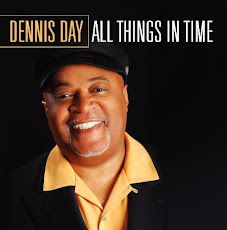
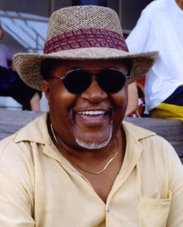
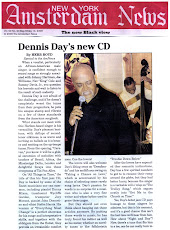
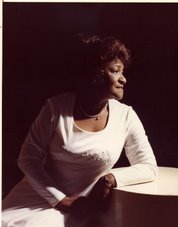
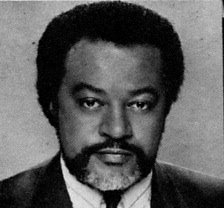
No comments:
Post a Comment